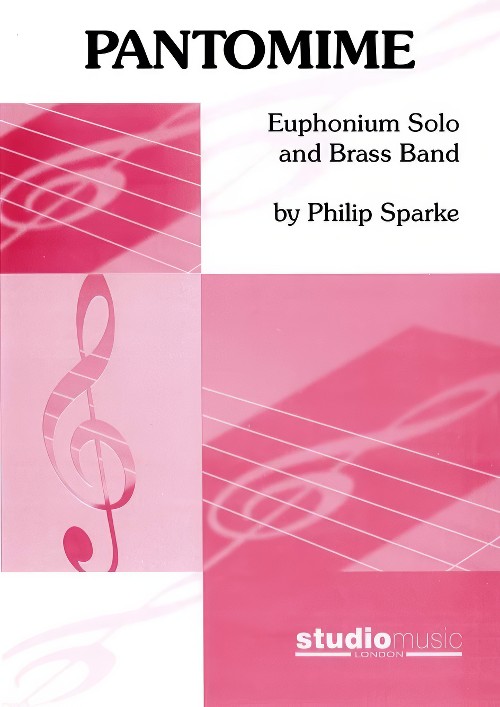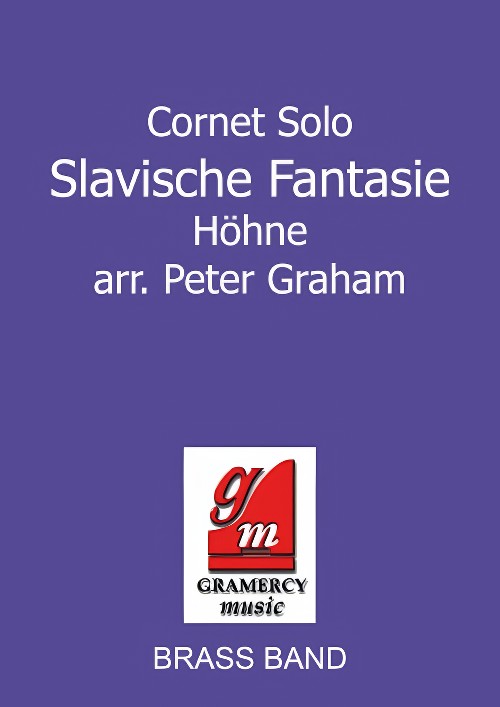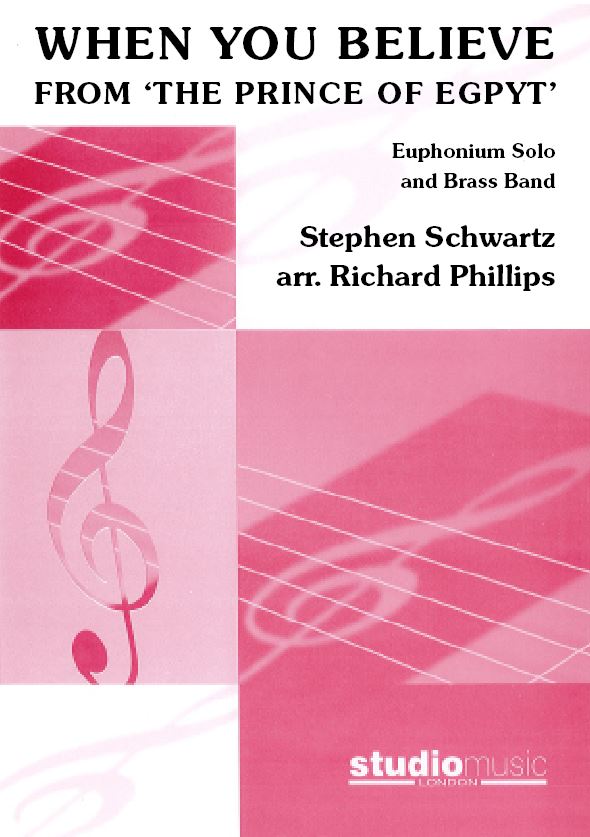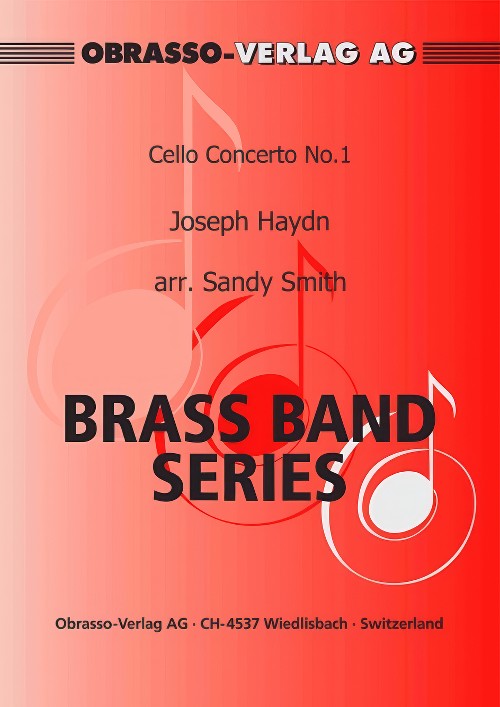Results
-
 £44.95
£44.95Images Of Praise (Euphonium Solo with Brass Band - Score and Parts) - Downie, Kenneth
This solo was written for Derick Kane and consists of two sections. The first is built on an original, lyrical melody which is introduced immediately by the soloist while the second is more virtuosic in style and features a tune by the late Keith Prynn, 'I feel like singing all the time'. The solo is jaunty and light-hearted, with a fine sense of style, and not without a dash of humour.
Estimated dispatch 7-14 working days
-
 £22.50
£22.50Images Of Praise (Euphonium Solo with Brass Band - Score only) - Downie, Kenneth
This solo was written for Derick Kane and consists of two sections. The first is built on an original, lyrical melody which is introduced immediately by the soloist while the second is more virtuosic in style and features a tune by the late Keith Prynn, 'I feel like singing all the time'. The solo is jaunty and light-hearted, with a fine sense of style, and not without a dash of humour.
Estimated dispatch 7-14 working days
-
 £37.95
£37.95Pantomime (Euphonium Solo with Brass Band - Score and Parts) - Sparke, Philip
Pantomime was commissioned by euphonium virtuoso Nick Childs in 1986. Designed to show off both the lyrical and technical prowess of the instrument, the piece draws on the varied characters of the Italian Commedia dell'Arte tradition for its wide emotional range.Recorded on Polyphonic QPRL056D National Brass Band Championships of Great Britain and Gala Concert - 1992Recorded on Polyphonic QPRL045D Making Tracks
Estimated dispatch 7-14 working days
-
 £44.95
£44.95Slavische Fantasie (Cornet or Euphonium Solo with Brass Band - Score and Parts) - Hohne, Carl - Graham, Peter
This famous cornet virtuoso piece is now available for cornet or euphonium and band. (Please note: this version is slightly abridged to give a duration of approx. 5 minutes)
Estimated dispatch 7-14 working days
-
 £42.95
£42.95When You Believe (Euphonium Solo with Brass Band - Score and Parts)
Originally performed by Michelle Pfeiffer and Sally Dworsky in the DreamWorks movie, The Prince of Egypt, the more famous pop single version of this work was performed by Mariah Carey and the late great Whitney Houston.In this version arranged for Soloist and Brass Band, you can showcase your star Euphonium player.Duration: 4.30
Estimated dispatch 7-14 working days
-
 £44.95
£44.95Slavische Fantasie (Cornet Or Euphonium Solo with Brass Band)
This famous cornet virtuoso piece is now available for cornet or euphonium and band. (Please note: this version is slightly abridged to give a duration of approx. 5 minutes)
Estimated dispatch 7-14 working days
-
£24.95
SWAN, The (Trombone or Euphonium Solo with Brass Band Set) - Saint-Saens - Ray Steadman-Allen
Featured by many Euphonium soloists over the years, the main aim of the soloist here is to re-create the sonorous sound of the cello, for which instrument it was set in its original form in 'Carnival of the Animals'.
Estimated dispatch 7-14 working days
-
 £59.70
£59.70Cello Concerto No.1 (Euphonium Solo with Brass Band - Score and Parts) - Haydn, Joseph - Smith, Sandy
The Third Movement from Haydn's Cello Concerto No.1 is now available for your Euphonium Soloist
Estimated dispatch 7-14 working days
-
 £24.95
£24.95The Swan (Trombone or Euphonium Solo with Brass Band - Score and Parts) - Steadman-Allen, Ray
Featured by many Euphonium soloists over the years, the main aim of the soloist here is to re-create the sonorous sound of the cello, for which instrument it was set in its original form in 'Carnival of the Animals'.
Estimated dispatch 7-14 working days
-
 £12.50
£12.50The Swan (Trombone or Euphonium Solo with Brass Band - Score only) - Steadman-Allen, Ray
Featured by many Euphonium soloists over the years, the main aim of the soloist here is to re-create the sonorous sound of the cello, for which instrument it was set in its original form in 'Carnival of the Animals'.
Estimated dispatch 7-14 working days
